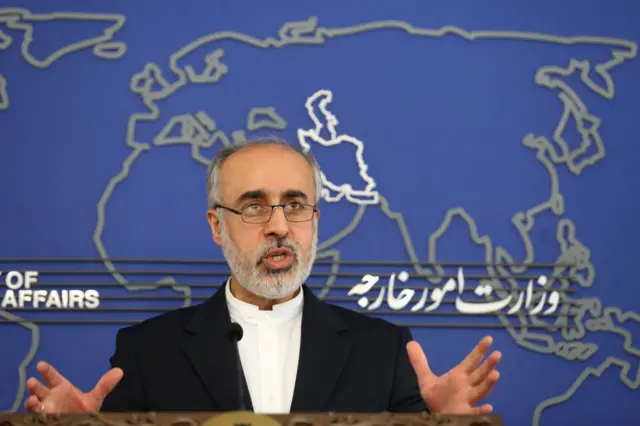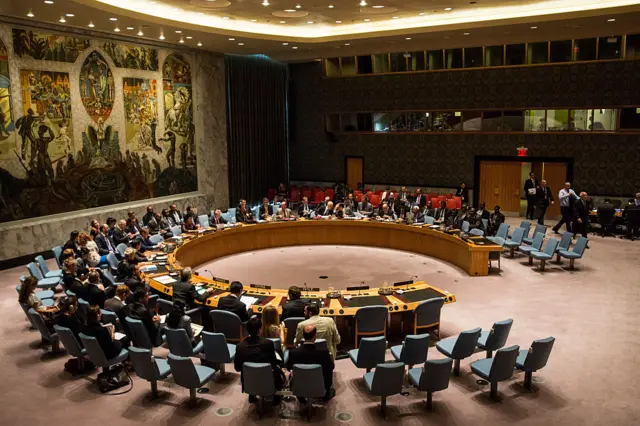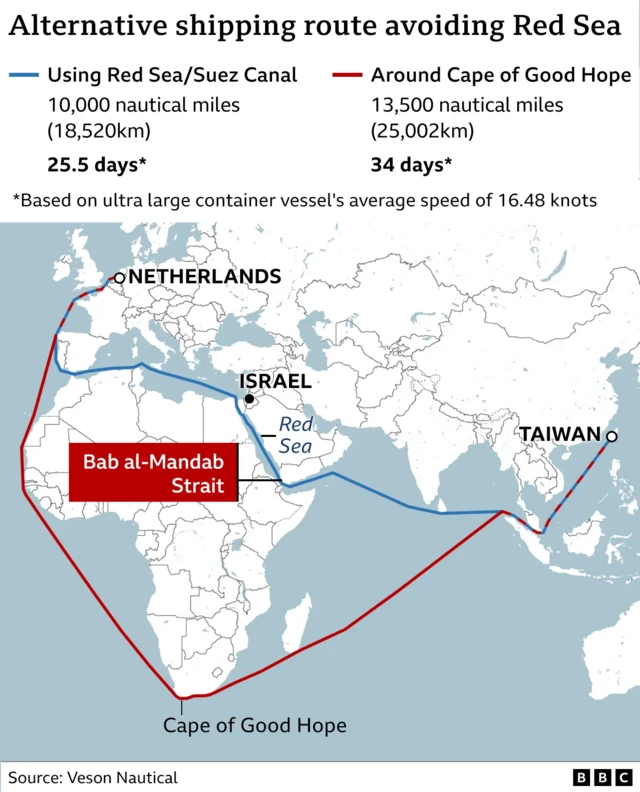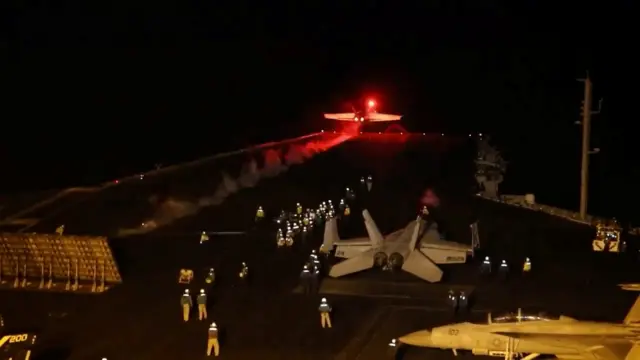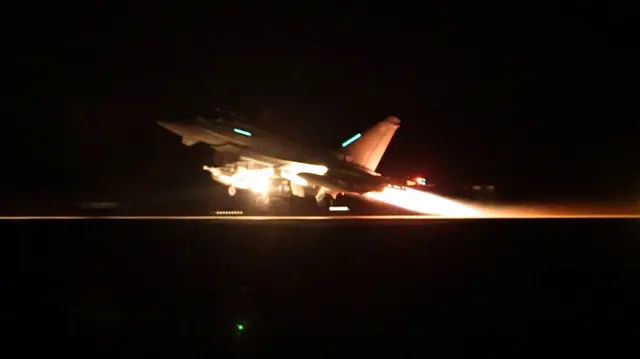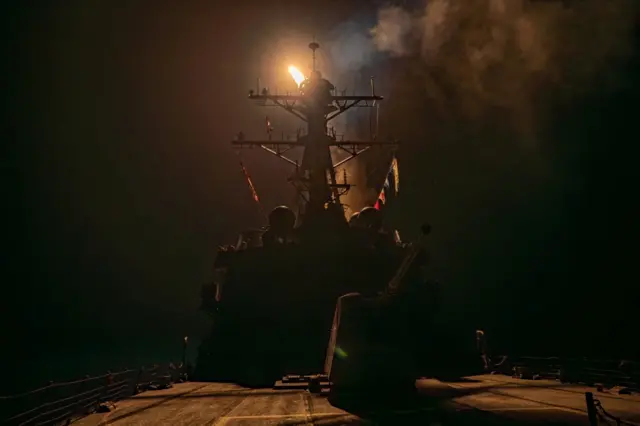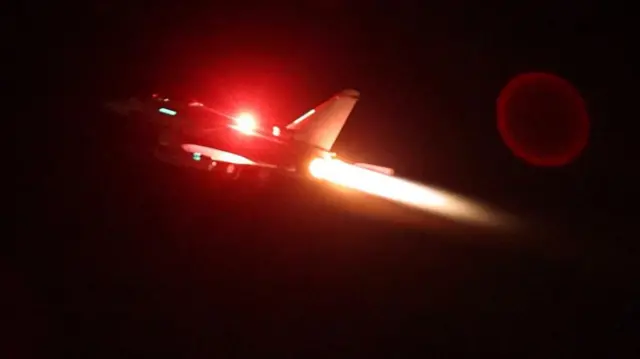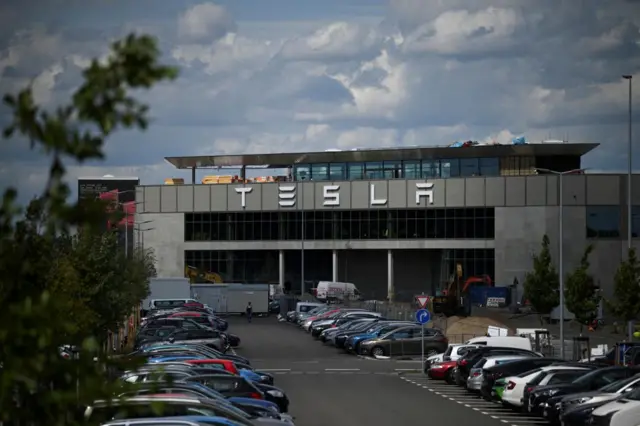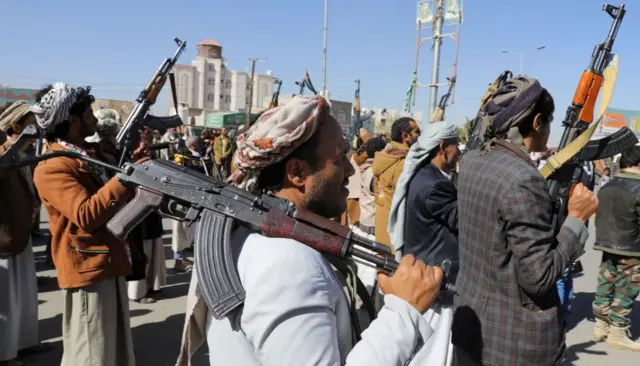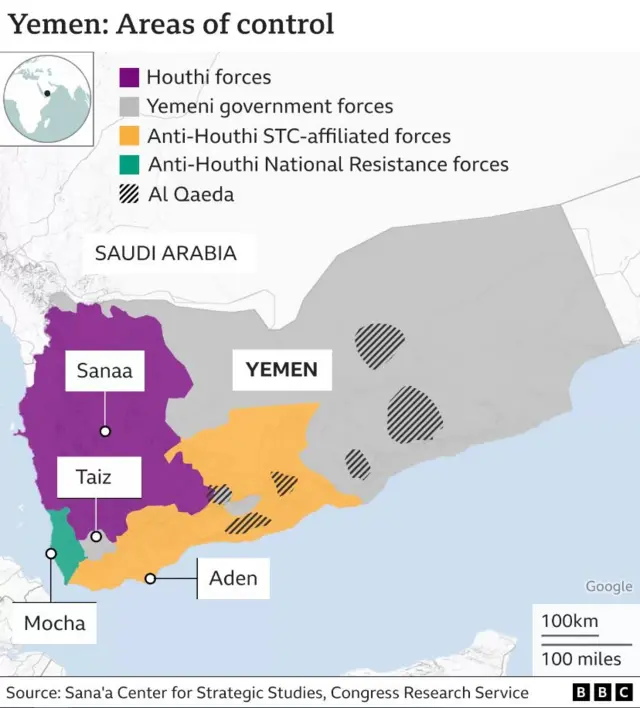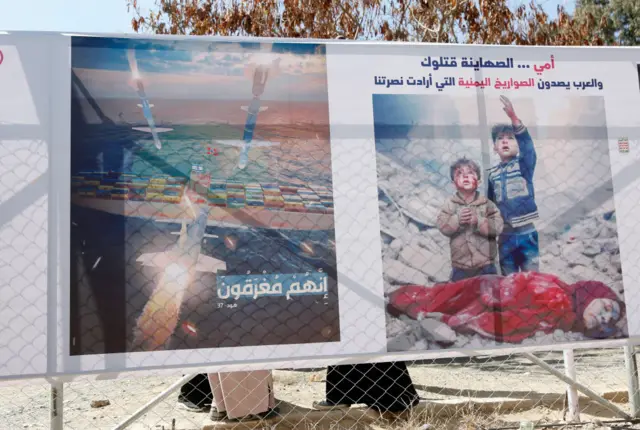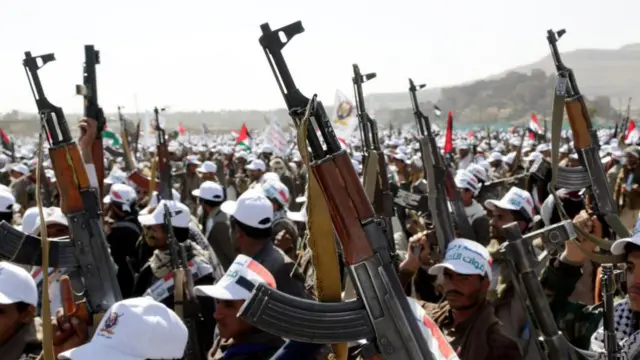Australia's decision to support strikes 'not taken lightly'published at 06:23 GMT 12 January 2024
 Image source, Getty Images
Image source, Getty ImagesRichard Marles described the air strikes as "very important actions"
The country's deputy PM and defence minister, Richard Marles, has given the only real insight so far into Australia's role.
Speaking to media a short time ago, he said it had come "in the form of personnel in the operational headquarters", but did not elaborate further.
The air strikes were about ensuring freedom of navigation on the seas and maintaining global trade, he added.
"That is completely central to Australia’s national interest. This decision was not taken lightly."
